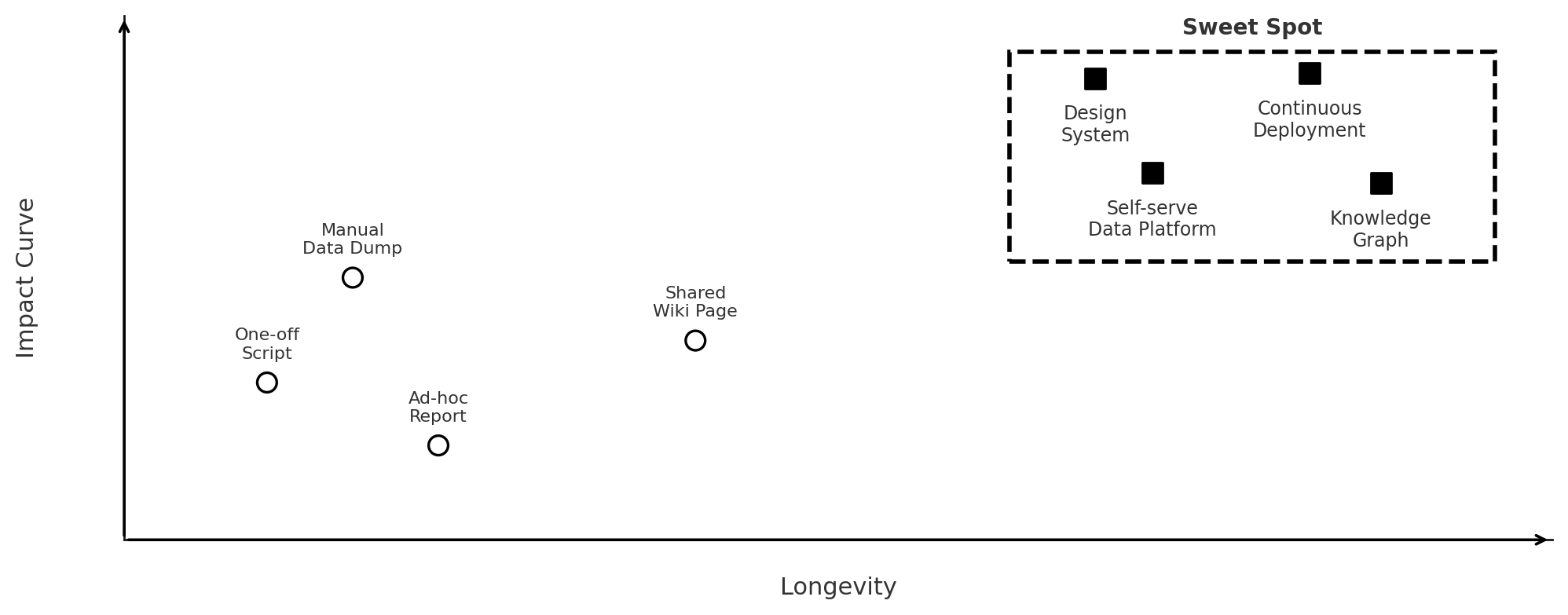For Staff and Principal Engineers, the goal is to identify and deliver leveraged work, efforts that multiply both throughput and quality across the organisation.

Picture leverage as a chart: time on the x-axis, impact on the y. The goal is top-right: work that lasts years and touches everything. Not quick boosts or flashy results, but work that compounds. Work that becomes foundation, shifts how teams think, makes everyone better.
| If it… | …then it probably belongs in that sweet-spot |
|---|---|
| keeps paying dividends long after the launch | Longevity is doing the heavy lifting |
| turns one hour of effort into many hours saved for others | Non-linear impact is showing up |
| lets teams build on it rather than around it | clear Enablement |
| leaves a template, script, or doc that’s easy to copy | strong Teachability |
Finding leveraged work is mostly detective work. Talk to teams, read between the lines, spot the patterns.
- Pain-point mapping: Sit with on-call, read incident reviews, spot recurring toil
- Roadmap stress-tests: “What single failure would torpedo next year?” Fix that first
- Glue-work synthesis: Connect patterns across teams into shared libraries or services
Below are some concrete examples of leveraged work:
- Feature-flag platform: Internal service and SDKs for fast, reversible releases
- Incident retrospective programme: Lightweight 5-Whys process targeting systemic fixes
- Service bootstrap template: Generator that creates production-ready apps in minutes
Leveraged work is how Staff and Principal engineers multiply impact as it’s durable, scales beyond the individual, and spreads by design.
Published on .